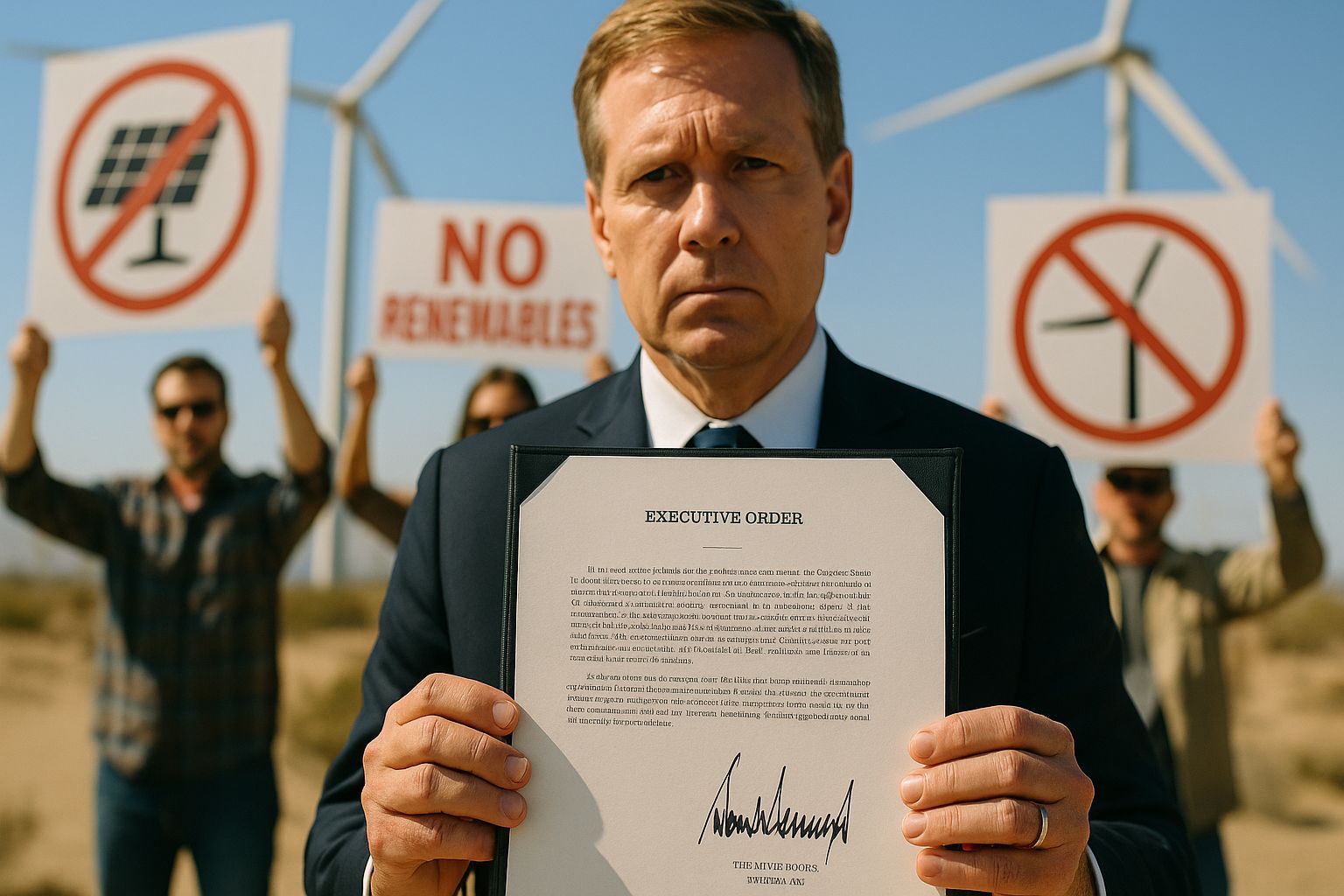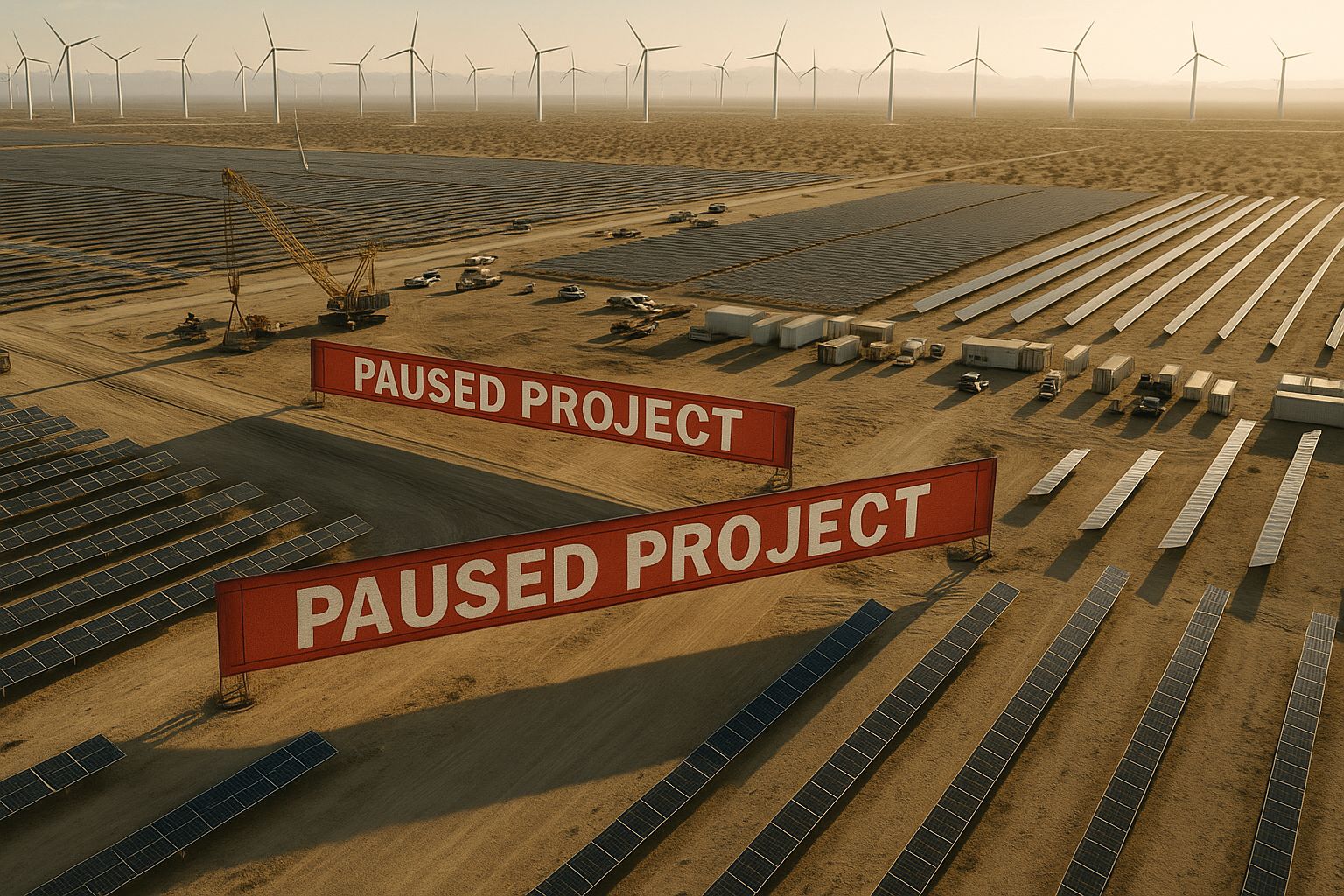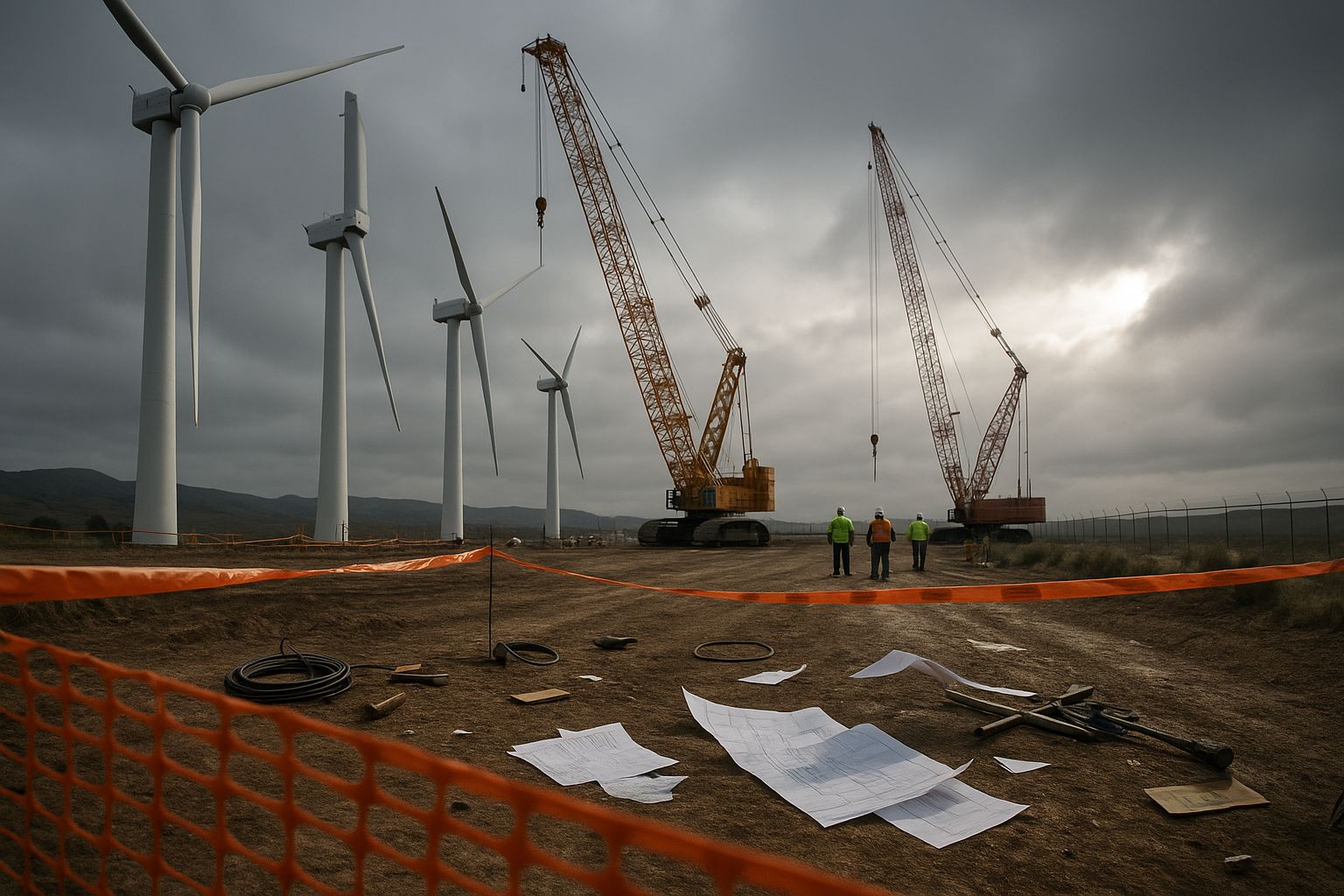- Green Glow
- Posts
- 🌱 Wind and Solar Projects Face Delays Under Trump’s Executive Order 🏛️📄
🌱 Wind and Solar Projects Face Delays Under Trump’s Executive Order 🏛️📄
President Trump’s executive order adds new scrutiny to wind and solar projects on federal lands, delaying clean energy development just as key tax credits near expiration. Learn how this policy shift impacts the renewable sector and favors coal.
The Biden-era push for rapid renewable energy deployment on federal lands has met a formidable new hurdle. On July 17, 2025, the Interior Department, following an executive order from President Donald Trump, announced additional layers of review for wind and solar projects. The move marks a sharp pivot in federal energy policy, placing clean energy projects under stricter scrutiny just as developers race to break ground before key tax credits expire next year.
Table of Contents

A New Layer of Bureaucracy for Renewables
The new rules, instituted by the Interior Department, apply specifically to wind and solar energy projects on federal lands and waters. The executive order directing the changes claims to eliminate what Trump calls “preferential treatment” for renewable energy. The result is a more complex and potentially slower permitting process, which energy companies fear will delay or derail many large-scale projects.
These changes do not apply to projects on private land, but a significant portion of the nation’s utility-scale renewable energy development—particularly in the Southwest and Western states—depends on access to public land.
The Tax Credit Deadline: A Race Against Time
The timing of the announcement couldn't be more consequential. Many developers are scrambling to begin construction before July 2026, the deadline to qualify for federal clean energy tax credits. These credits, originally bolstered under the Inflation Reduction Act, have been dramatically reduced by Trump’s new legislation, the “One Big Beautiful Bill”, passed earlier this month.
With permitting timelines now more uncertain, developers worry that the delay caused by the new reviews could cost them their financial viability, leading to postponed or canceled projects.
A Boost for Coal — and a Blow to Climate Goals
In a parallel move on the same day, Trump issued a proclamation exempting several coal-fired power plants in Ohio, Colorado, and Illinois from stricter mercury and toxic emission rules that were reinstated during the Biden administration. The exemption lasts through 2029, giving coal a temporary reprieve from environmental regulations.
This juxtaposition—slowing renewables while easing the path for coal—sends a clear message about the Trump administration’s energy priorities. Critics argue that it reverses hard-fought progress on decarbonization and risks undermining U.S. climate commitments.

Industry and Environmental Reactions
Renewable energy developers, environmental advocates, and some state officials have expressed alarm at the policy shift. Several have warned that these changes could jeopardize jobs, disrupt supply chains, and slow the country’s transition to a cleaner grid.
“We’re talking about billions of dollars in projects now at risk,” said a spokesperson from the American Clean Power Association. “These delays are not just procedural—they’re political.”
On the other hand, fossil fuel lobbyists and some congressional Republicans praised the order, citing concerns about land use, national energy independence, and what they view as an over-reliance on intermittent energy sources like wind and solar.
The Bigger Picture: Political Ideology vs. Energy Transition
This executive action fits into a broader ideological narrative. While the Biden administration had framed renewable energy as an engine of economic growth and climate leadership, the Trump administration is now prioritizing fossil fuel reliability and regulatory rollback.
The result is a clash not just of policies, but of timelines. The energy transition, inherently long-term, now faces short-term disruptions driven by shifting political winds.

Conclusion
The long-term future of renewable energy in the United States remains strong, driven by falling costs, private investment, and state-level mandates. However, the federal policy shift under Trump’s administration could delay progress at a critical juncture.
With global climate deadlines looming and clean energy markets growing more competitive internationally, these new barriers may have consequences that extend beyond U.S. borders.
For now, the message is clear: under Trump’s watch, renewable energy development will face a slower, more uncertain path—at least on federal land.
FAQs
What does Trump’s executive order mean for wind and solar projects?
The order mandates additional review procedures for renewable energy projects on federal lands, making the approval process slower and more complex.
Why are these delays a problem for renewable developers?
Many projects are racing to start construction before July 2026 to qualify for federal tax credits. Delays in permitting could cause them to miss this critical deadline, jeopardizing financing and viability.
Do the new review rules affect projects on private land?
No. The new requirements only apply to projects on federal lands and waters. Projects on private land are generally not subject to these federal reviews.
What is the “One Big Beautiful Bill”?
It’s a new legislative package passed by Congress under Trump’s administration that, among other things, reduces renewable energy tax credits and rolls back environmental regulations.
How does this executive order impact coal plants?
Simultaneously with the order, Trump issued exemptions for several coal plants from stricter emissions rules, effectively giving fossil fuels a regulatory advantage.
How are environmental groups and the energy industry reacting?
Environmentalists and renewable energy advocates have condemned the changes, calling them politically motivated. Fossil fuel advocates and some Republican lawmakers support the move as a step toward “energy realism.”
You May Also Like
External Links
Study: Centuries-old mercury pollution threatens Arctic wildlife
Tulane faces backlash for silencing researcher exposing pollution and racial bias
Trump’s EPA announces major rollbacks to power plant pollution limits
Michigan’s fight against Lake Erie pollution didn’t work. What happens next?
Trump administration grants air pollution exemptions to 66 coal-fired power plants
Follow Us:
X: https://www.x.com/greenglownews
Youtube: https://www.youtube.com/@greenglownews
Instagram: https://www.instagram.com/greenglownews
Sponsored Links